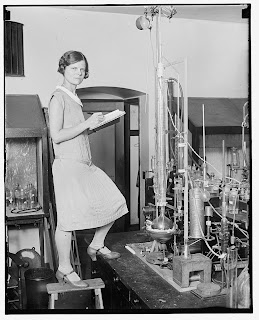Most of us started out in science with visions of all the neat experiments we would run; the interesting plants, animals, and environments we would work with; the exciting people we would meet; and the fame we would enjoy when we made some new discovery. We were not aware (or if aware, did not give it much thought) that to succeed in science and continue doing all those other fun things, we would have to write....a lot. And the writing would have to be good. And it would be scrutinized by reviewers and editors. And it might not pass muster. Little wonder that many scientists struggle at some point in their development with writing problems.
Until I did some reading about writing problems, aka "writer's block", I thought these were due to single factors such as perfectionism. According to R. Boice, author of a book on writer's block, things are a bit more complicated.
Information about writing problems apparently is based more on conjecture than on empirical study. People view writer's block as being as mysterious as writing itself. A lot of myths surround the process of writing, which can contribute to some of the problems novice writers encounter. For example, I often hear people say that they have to have a good idea of what they are going to say before starting to write. The fact that this is a statement often made by people with writer's block speaks for itself. I find, in contrast to this idea, that the very act of writing stimulates ideas and insights that do not necessarily come while just contemplating a writing project.
So what are the causes of writing problems? The following points are modified from the book, "Professors as Writers-Self Help Guide to Productive Writing", by R. Boice:
1. Poor work habits. I would guess the single most common reason given for not writing is lack of time. I know I use that excuse. However, observations of academicians' activities show small blocks of time during the work week in which writing could be done, but isn't taken advantage of. These writers often say that they need large blocks of uninterrupted time to write. In fact, professors who write in brief, daily chunks (30 min) accomplish more than their colleagues who binge-write. Successful writers tend to write early in the morning when they are fresh, work at a regular schedule, and ensure a good physical environment for writing.
2. Fear of failure. We fear that our writing may turn out to be inaccurate or boring and get rejected. Or we may fail to complete the writing task on time. These writers are apprehensive about the outcome and engage in behavior that undermines their writing.
3. The internal critic. This construct of our own brains censors our ideas as not being good enough, which prevents us from getting any ideas down on paper until they are perfect in our heads. This mental censor kills spontaneity and confidence.
4. Perfectionism. This trait is a major cause of writing problems and one that has connections with #2, fear of failure and #3 internal critic. For some writers, this manifests itself as a compulsion to keep revising and never getting to the point of finishing. For others, perfectionism prevents spontaneity and getting ideas down on paper because they think it has to be written perfectly the first time.
5. Procrastination. Because writing is an intermittent activity and easily put off, it suffers inordinately from procrastination. People procrastinate because of #2 fear of failure and distaste of the task.
6. Early experience. This cause can range from being told unproductive myths about writing by teachers to a terrible writing experience such as the one I described previously.
7. Mental health. Writers and other creative people have traditionally been portrayed as being mentally or emotionally unstable. This idea about writers' psychopathology naturally extends to why writers have writing problems. Studies correlate mood disorders with creativity in writers and conclude a cause and effect relationship. But it may be that mood disorders arise from the writer's work habits or that both are responding to a third, unobserved factor.
8. Personality types. This cause is related to several of the others. People who are introverted and more self-conscious (perfectionists) may be inclined toward writing problems more than those who are extroverts and less concerned about what other people think of them.
In the next posts, I'll take a closer look at some of these issues and some possible solutions.
Photo credit: Library of Congress, unidentified "woman scientist" circa 1909

No comments:
Post a Comment